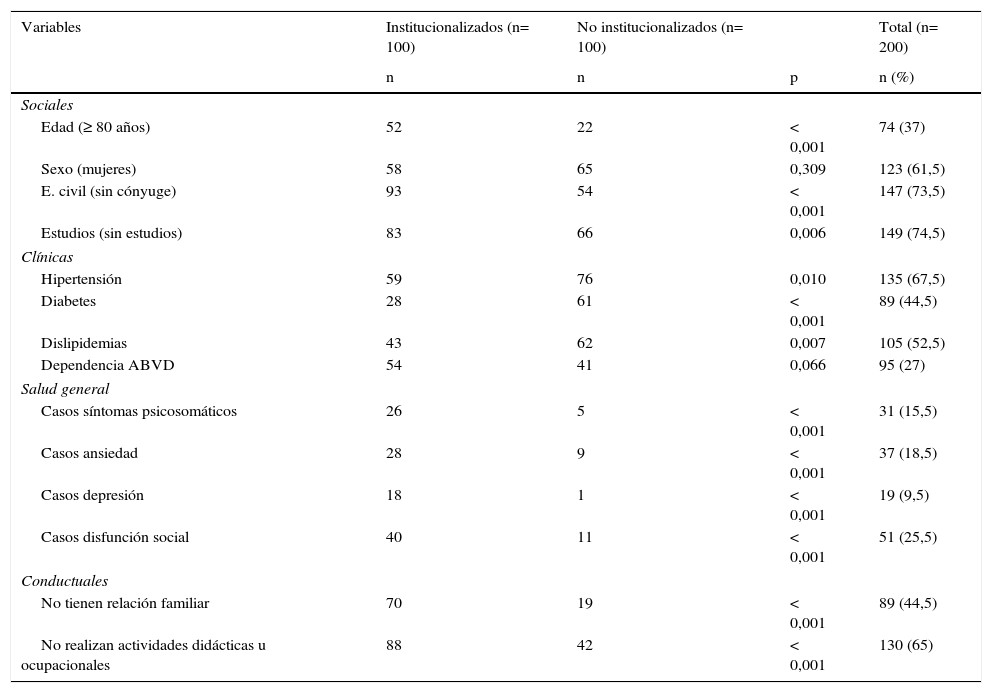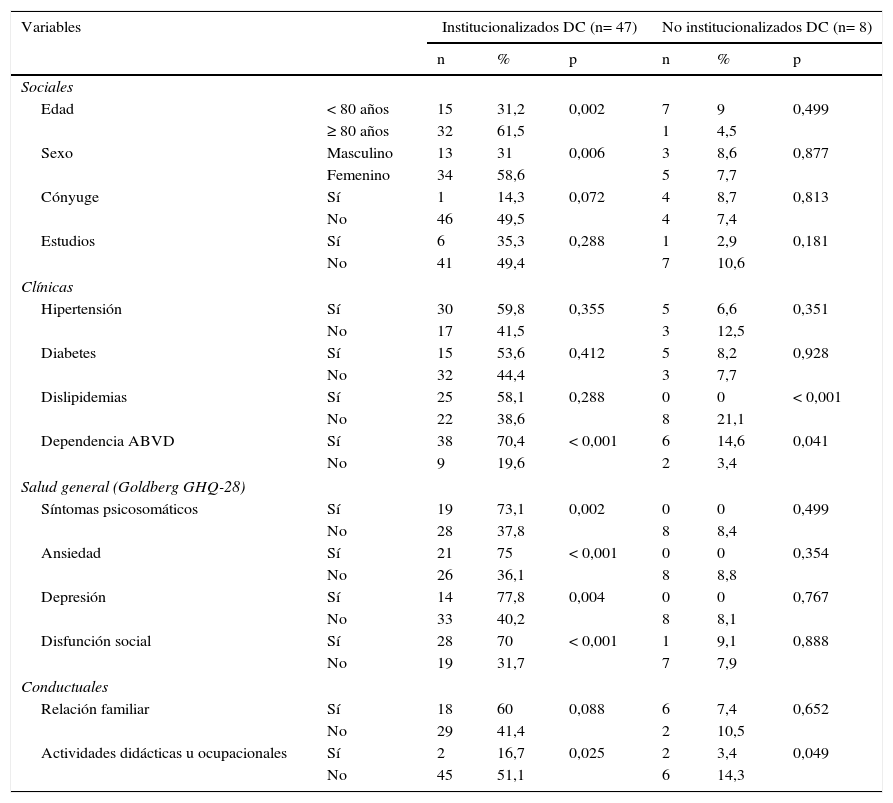Describir los factores que puedan asociarse con deterioro cognitivo en personas mayores institucionalizadas y no institucionalizadas.
MétodoEstudio transversal a 200 personas mayores de 64 años en Huelva (España) en 2014. De ellas, 100 personas estaban institucionalizadas en un centro residencial y 100 no institucionalizadas. Se evaluó el deterioro cognitivo mediante el Mini-Mental State Examination (Mec-35), las actividades básicas para la vida diaria mediante el índice de Barthel, la salud general a través del Goldberg GHQ-28 y variables de tipo social, clínico y conductual. Se analizó asociación del deterioro cognitivo con todas las variables mediante ji cuadrado. Finalmente se realizó un análisis multivariante mediante regresión logística, para identificar la asociación conjunta de las variables a estudio con el deterioro cognitivo.
ResultadosLa prevalencia de deterioro cognitivo en institucionalizados fue del 47%, superior a la de los no institucionalizados que fue del 8% (p< 0,001). La dependencia para las actividades básicas para la vida diaria y las actividades didácticas fueron las únicas variables que en ambos grupos se asociaron con el deterioro cognitivo. La institucionalización (OR= 5,368), la edad (OR= 1,066) y la dependencia para las actividades básicas para la vida diaria (OR= 5,036), se asociaron de forma negativa con el deterioro cognitivo, mientras que las actividades didácticas (OR= 0,227) se asociaron de forma positiva.
ConclusionesLa realización de actividades didácticas y el fomento de la autonomía personal puede retrasar la aparición del deterioro cognitivo. Es importante incluir programas de estimulación cognitiva dirigidos a la población mayor, especialmente en las instituciones residenciales.
Describe the factors which can be associated with cognitive impairment in institutionalized and non-institutionalized elderly.
MethodCross-sectional study of 200 people aged over 64 in Huelva (Spain) in 2014. Of these, 100 people were institutionalized in a residential facility and 100 were not. Cognitive impairment was assessed using the Mini-Mental State Examination (MMSE-35), basic activities of daily living by Barthel index, general health through the Goldberg GHQ-28 and social, clinical and behavioural variables were contemplated in the study. The association of cognitive impairment with all the variables was analysed using Chi-square test. Finally, a multivariate analysis was performed using logistic regression to identify possible joint influence of variables to study on the cognitive impairment.
ResultsThe prevalence of cognitive impairment in those institutionalized was 47%, higher than that of non-institutionalized group which was only 8% (p<.001). The dependence for basic activities for daily living and learning activities were the only variables in both groups which were associated with the cognitive impairment. Institutionalization (OR=5.368), age (OR=1.066) and dependence for basic activities (OR=5.036) were negatively associated with CI, while learning activities (OR=.227) were associated in a positive way.
ConclusionsConducting learning activities and the promotion of personal autonomy can delay cognitive impairment in older people. It is important to include cognitive stimulation programs aimed at the old population, especially in residential institutions.
Artículo
Comprando el artículo el PDF del mismo podrá ser descargado
Precio 19,34 €
Comprar ahora










